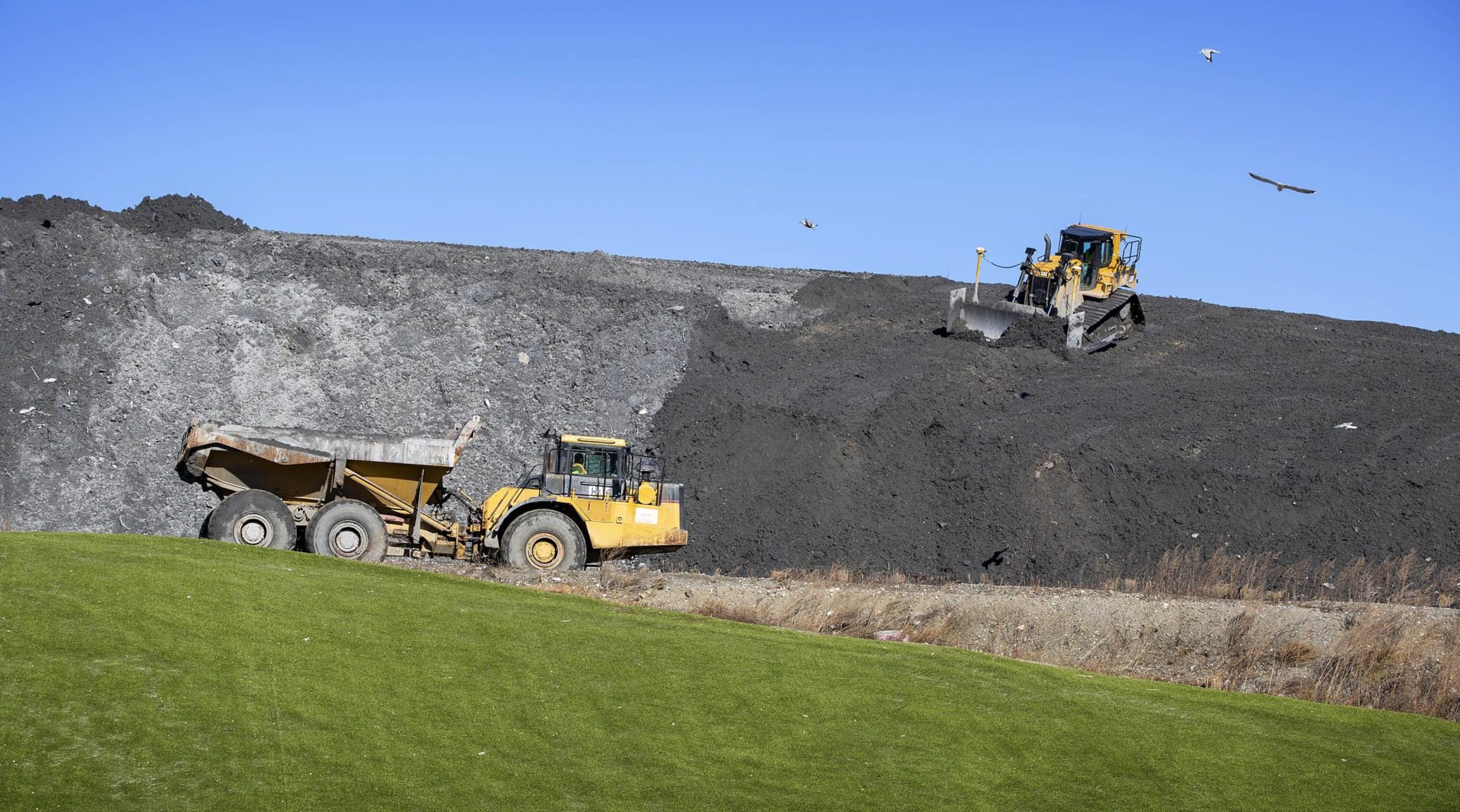Reducing trash may reduce the need for incinerators in Mass.

A bulldozer levels ash on a landfill mound beside Covanta’s Haverhill waste facility that incinerates trash and generates electricity. (Robin Lubbock/WBUR)
Editor’s note: This is the second in a two-part series about trash incineration in Massachusetts. Part 1 looks at the perspectives of the communities housing incinerators.
The roads heading to the incinerator in Haverhill, Mass., can at times look like a parade in honor of trash.
Dump trucks rumble in carrying garbage bags from 24 cities and towns, not including the hauls coming in from transfer stations. The trucks come all day long; as many as 250 come through to drop off trash on a given day, according to plant officials.
“Folks work here every day to process about 1,650 tons per day, and around 602,000 tons annually through the facility,” said Bill Zaneski, the facility manager.
The trash moving through Haverhill is a fraction of what’s produced in the state. According to the Massachusetts Department of Environmental Protection’s 2030 Solid Waste Master Plan, in 2019 residents and businesses threw out 5.5 million tons of garbage.
Most of that was burned at incinerators, like the one in Haverhill, because Massachusetts has barely any landfill space left. MassDEP oversees seven incinerators, nearly all of which produce electricity. According to a report from the Tishman Environment and Design Center at The New School, Massachusetts burns the most household trash per capita in the country.
Activists want the state to stop relying on incinerators to handle trash because of concerns about pollution. They also don’t want to see more landfill use; trash that isn’t burned in Massachusetts is largely sent to be buried out of state.
“We haven’t created programs to deal with our waste,” said Kirstie Pecci, an environmental attorney with the Conservation Law Foundation, “and people don’t really, can’t really imagine anything different than just burning it and burying it.”
But Pecci and other advocates do imagine something different: a policy framework of “zero waste.” It’s basically a system of policies that force companies to make less stuff, and force people to put less in the trash can, as a means of reducing our overall trash production.
“What we’re talking about is reducing waste first, then reusing and redesigning materials so they can be reused,” she said, “and then, only after we do that, do we look at actually recycling and composting.”
Read the rest of this story and listen to the audio version at WBUR.org.
For more NENC stories on trash and waste issues in New England, click here.
